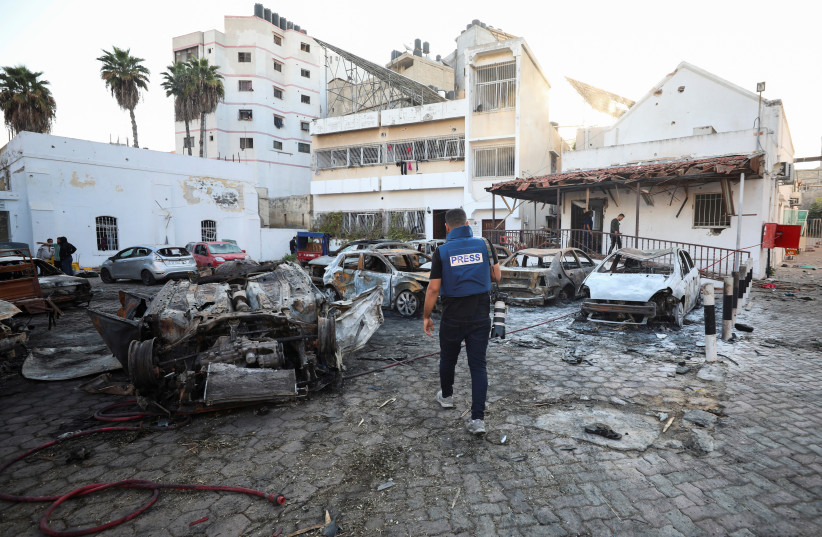The BBC quietly dropped its policy of referring to Hamas as "militants" on Friday according to British media.
The BBC told the Board of Deputies that it would no longer refer to Hamas as "militants". Instead, it will characterize Hamas as "a proscribed terrorist organization by the UK government and others", or simply as "Hamas".
The change was announced during a meeting between the BBC Director General Tim Davie and the Board of Deputies.
Although Davie announced that Hamas would not longer be referred to as militants he clarified by saying "What the BBC does not do is use the word terrorist without attributing it, nor do we ban words."
"We also confirmed that for some days we had not been using ‘militant’ as a default description for Hamas, as we have been finding this a less accurate description for our audiences as the situation evolves," he continued.

The change comes just days after the BBC falsely accused Israel of conducting the Al-Ahli Hospital strike, which it claimed had over 500 dead in line with statements made by the Hamas-controlled Gaza Health Ministry.
Subsequent investigations showed that the strike was caused by a misfired Palestinian Islamic Jihad missile and that the death toll had been greatly exaggerated with current estimates saying the dead numbered between 10 and 50.
Critics of the BBC have said that the BBC's total acceptance of the Hamas-controlled Gaza Health Ministry's figures while dismissing Israeli claims is in contravention of its own editorial guidelines.
Several British publications have questioned whether the move was truly a result of a change of heart or if it was driven by the review of BBC funding which is coming up in the next week. It's speculated that British government ministers are planning to cap the license fee (the source of BBC funding) to the lowest possible rate of inflation. The new fee is expected to be announced in April 2024.
What is the BBC's policy?
John Simpson, who has worked at the BBC since 1970 and as World Affairs Editor since 1988, wrote an article outlining BBC policy in regards to calling groups terrorists.
He says "Terrorism is a loaded word" and that it is not the BBC's job to tell people who are the "good guys" and the "bad guys", this is part of the BBC's founding principle he claims.
He says that the BBC does point out that many governments have declared Hamas a terrorist organization, "that's their business".
"Our business is to present our audiences with the facts, and let them make up their own minds."
Simpson has no problem personally calling the actions of Hamas atrocities, "It's perfectly reasonable to call the incidents that have occurred 'atrocities' because that's exactly what they are."
The quibble arises when the BBC makes it into a statement, he highlights that during the Second World War, "BBC broadcasters were expressly told not to call the Nazis evil or wicked, even though we could and did call them 'the enemy'".
"We don't take sides. We don't use loaded words like 'evil' or 'cowardly'. We don't talk about 'terrorists'." Simpson claims that it is this "objectivity" that makes the BBC a world-renowned and respected media organization.
However, it is exactly this "objectivity" that led the BBC not to question the actions and statements made by Hamas, one has to question whether the BBC is applying its standards of objectivity fairly or equally.
